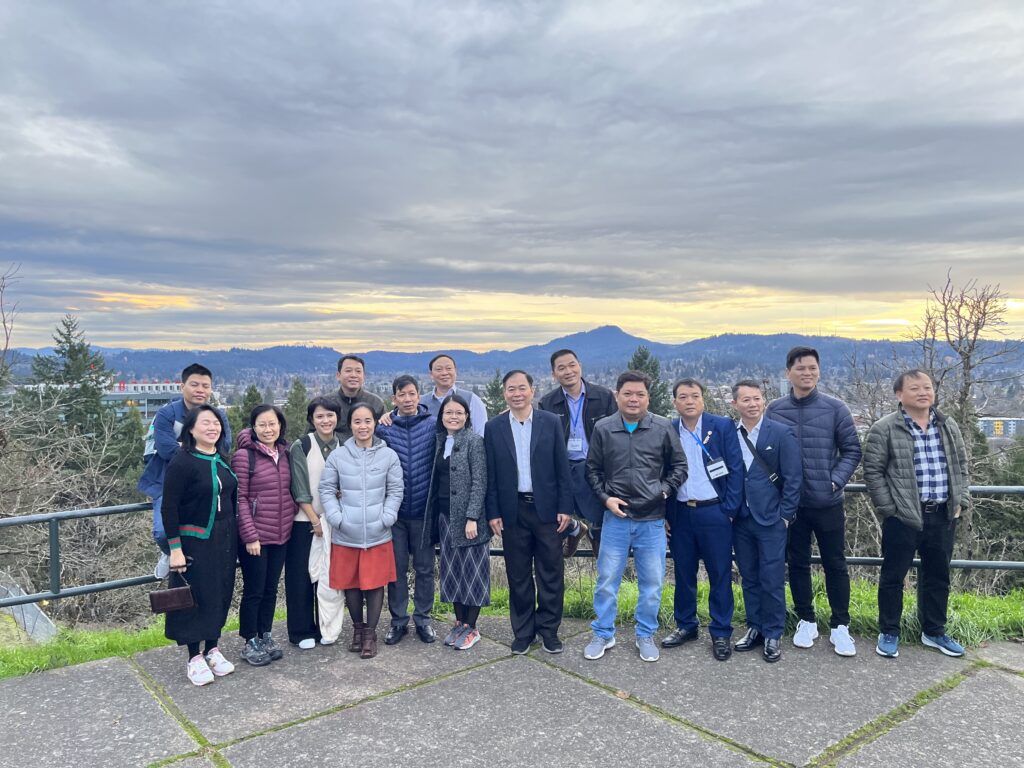“It’s a stuffed bell pepper with rice, meat and different kinds of vegetables.” My parents listened intently as I translated the waiter’s explanation of this traditional Peruvian dish.
As a blind person, I was used to having a sighted intermediary explain the menu, and tell the waiter what I wanted. But this was different. Everything on the menu and all the conversation around us was in Spanish and I was the only one of our group who could understand it. I turn to the waiter and referring to my parents, I explained, “She’ll have the stuffed bell pepper and he wants the soup.”
This moment represented a change in a power dynamic that traditionally favored sighted people who acted as cultural intermediaries for me. They interpreted the print language, and were called upon to speak for me, when others wouldn’t address me directly.
Studying Spanish abroad in Mexico and then in Chile didn’t teach me how to be proficient in the language, but it did validate all of the time that I had invested in watching telenovelas, reading books, looking words up in the dictionary, following Spanish-language periodicals, and listening to the radio in Spanish. While overseas I appreciated how the skills that I had developed might be used in an everyday context. I didn’t just access Spanish. I developed friendships, conducted research, traveled, and gained new perspectives.
Every day, the experience of learning or teaching a foreign language abroad moves us forward as disabled people by providing opportunities for us to challenge traditional paradigms of disabled people as recipients rather than providers of assistance. By studying languages abroad, we reassert our role in deciding how people will deal with us and through teaching we take risks outside of our comfort zone.
Yet, much work still needs to be done to facilitate the participation of people with disabilities in these kinds of programs. Students of languages encounter difficulties accessing materials, classrooms, and host country environments.
The collection of tips, good practices, and stories that you will find in the Access Languages to Access Opportunities issue of A World Awaits You offers innovative approaches to the aforementioned challenges. Professionals involved in the offering of international exchange programs for language learners or teachers will find good practices for adding diversity to your participant rolls, including discussions of techniques, questions to ask, and formulating procedures and budgets.
Representatives of ESL schools will learn that they don’t need to have access to an endowment to increase the diversity of their student base.
Prospective language students with disabilities will find a tip sheet advising on how to best advocate for themselves in the language classroom.
We also bring you six compelling stories about the ways that exchange participants with disabilities study or teach languages through international exchange.
Ultimately we hope that this latest collection of resources will spark a new way of thinking about people with disabilities accessing foreign language programs and career fields.
Our goal is to empower people with disabilities to take advantage of the same international exchange opportunities as everyone else, navigating any access barriers along the way. For over two decades, our free services and resources have been made possible by the National Clearinghouse on Disability and Exchange, a project sponsored by the Bureau of Educational and Cultural Affairs of the U.S. Department of State and administered by Mobility International USA.




